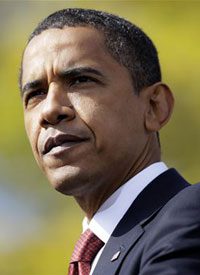
A transcript of the excerpted portion of the interview follows:
If you look at the victories and failures of the civil rights movement and its litigation strategy in the court. I think where it succeeded was to invest formal rights in previously dispossessed peoples, so that now I would have the right to vote. I would now be able to sit at the lunch counter and order as long as I could pay for it I’d be okay. But, the Supreme Court never ventured into the issues of redistribution of wealth, and of more basic issues such as political and economic justice in the society. To that extent, as radical as I think people try to characterize the Warren Court, it wasn’t that radical. It didn’t break free from the essential constraints that were placed by the Founding Fathers in the Constitution, at least as its been interpreted and Warren Court interpreted in the same way, that generally the Constitution is a charter of negative liberties. Says what the states can’t do to you. Says what the federal government can’t do to you, but it doesn’t say what the federal government or state government must do on your behalf, and that hasn’t shifted and one of the, I think, the tragedies of the civil rights movement was because the civil rights movement became so court focused I think there was a tendency to lose track of the political and community organizing and activities on the ground that are able to put together the actual coalitions of powers through which you bring about redistributive change. In some ways we still suffer from that.
Several statements that Senator Obama made in that interview are worthy of serious analysis, considering that (according to opinion polls) the man is very close to becoming the next president of the United States. Before taking that office, Obama, like all public officials, will be required to take an oath or affirmation promising to “preserve, protect, and defend the Constitution of the United States.” His understanding of document, as compared to how our Founding Fathers understood the instrument they created, therefore, will provide an excellent preview of what to expect from an Obama presidency.
In the interview Obama observed, quite correctly, that “generally the Constitution is a charter of negative liberties. Says what the states can’t do to you. Says what the federal government can’t do to you, but doesn’t say what the federal government or state government must do on your behalf.”
Compare Obama’s statement with another by James Madison, called “The Father of the Constitution”:
The powers delegated by the proposed Constitution to the federal government are few and defined. Those which are to remain in the State governments are numerous and indefinite. The former will be exercised principally on external objects, as war, peace, negotiation, and foreign commerce; with which last the power of taxation will, for the most part, be connected. The powers reserved to the several States will extend to all objects which, in the ordinary course of affairs, concern the lives, liberties, and properties of the people, and the internal order, improvement, and prosperity of the State.
Also compare what Obama said about the lack of constitutional language regarding what government must do on our behalf with another made by Thomas Jefferson, whose research invaluably aided the authors of our Constitution: “Congress had not unlimited powers to provide for the general welfare, but were restrained to those specifically enumerated.” Likewise, Alexander Hamilton, one of the authors of The Federalist Papers, written to encourage adoption of the Constitution, asserted that the welfare clause does not “carry a power to do any other thing not authorized in the Constitution, either expressly or by fair implication.”
As a graduate of Harvard Law School and former editor of the Harvard Law Review, Obama certainly has more than cursory familiarity with the intent of our nation’s Founders. But, by his own words, the problem is not that Obama is ignorant of the Founders’ intent, but that he regards even the Supreme Court led by Chief Justice Earl Warren — arguably one of the most revisionist courts — as having failed in its mission to overturn the legal structure designed by the Founders. Once more:
To that extent, as radical as I think people try to characterize the Warren Court, it wasn’t that radical. It didn’t break free from the essential constraints that were placed by the Founding Fathers in the Constitution, at least as its been interpreted and Warren Court interpreted in the same way, that generally the Constitution is a charter of negative liberties. [Emphasis added.]
Having heard from Obama on his views concerning preserving versus overturning the intent of the authors of the Constitution, there is that phrase “redistributive change” again. Obama lamented (“one of the … tragedies of the civil rights movement,” is his exact phrase) the fact that the movement became so focused on court cases that it neglected to build the political coalitions needed to “bring about redistributive change.”
The term redistribution is most often heard in the phrase “redistribution of wealth.” Interestingly, an ATI-News/Zogby poll conducted from October 17-20 asked potential voters: “John McCain and other critics say Barack Obama is heavily influenced by people and organizations which seek social justice through redistribution of wealth in America. Do you agree or disagree with efforts to bring social justice by the redistribution of wealth?”
The results? By a more than two-to-one margin, undecided voters disagree with such efforts to redistribute wealth. 57 percent of undecided voters said they disagreed, while only 24 percent said they agreed (19 percent are not sure).
As ATI-News president Brad O’Leary summed up the poll: “Our poll results show that undecided voters overwhelmingly reject Obama’s economic plan to redistribute wealth.”
As Karl Marx described his methodology to redistribute wealth: “From each according to his abilities, to each according to his needs.”
Perhaps Obama believes that the problem with Marxism is not that is has been tried and found lacking, but that (in America, at least) it hasn’t been tried.



